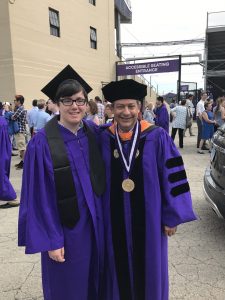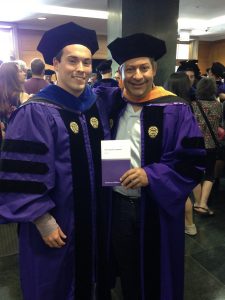SONIC graduate student, Marlon Twyman, presented two posters at the International School and Conference on Network Science (NetSci) 2017 held in Indianapolis, Indiana on June 19-23, 2017. One poster explores the integration of shared cognition, dynamic task networks, and agent-based modeling when studying collaboration within astronaut teams. The other poster investigates the performance of organizations when using various search strategies to find members of problem-solving teams.
Poster Citations:
Marlon Twyman, Leslie DeChurch, & Noshir Contractor. Using a Network Approach for Modeling Shared Cognition of Astronaut Teams. NetSci 2017 International School and Conference on Network Science, Indianapolis, Indiana, June 19-23, 2017. Twyman, M., Ma, L., Srivatsa, M., Cansever, D., & Contractor, N. Searching Networks to Assemble Teams. NetSci 2017 International School and Conference on Network Science, Indianapolis, Indiana, June 19-23, 2017.
Marlon Twyman, Liang Ma, Mudhakar Srivatsa, Derya Cansever, & Noshir Contractor. Searching Networks to Assemble Teams. NetSci 2017 International School and Conference on Network Science, Indianapolis, Indiana, June 19-23, 2017.


